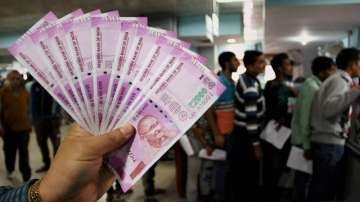Many of us keep our money in the savings account we have. For service sector employees its mostly their salary account with the operating bank. Most of us who don’t know much about investment and go for saving their hard-earned money in Savings Bank Account or Fixed Deposit in Banks/NBFCs. Traditionally we all want our money to be in safe hands with less risk and stable return.
If you are the one who normally refrains from taking market risks, then bank Fixed Deposits are the safest mode of investment for you. But whether you choose a savings account or FD for saving your money first you must decide the objective and goal of your investment before making any finance-related step. Especially when you have surplus cash in your savings account, it is wiser to keep aside a certain chunk of the surplus balance as an FD in your bank.
Here's what makes Fixed Deposits better than keeping money in Savings Account
Rate of Interest:
The most important part of all is the interest which one gets after keeping their money for investment. The rate of interest which you get in Fixed Deposits are much higher than the savings account. Interest Rate in FDs is inflation-adjusted returns and are not fixed. In a savings account, one can get an interest rate from 4 per cent to 7 per cent max, depending on banks accordingly. Whereas investment in FD can give you interest rate much higher with beating inflation with adjusted rates. Even if you have invested for the short term you will get more return than what you have saved in the savings account.
No market volatility risk:
Most of the investment returns are linked to markets volatility but FDs are safe with no risk related to markets fluctuations. The daily market volatility never affects your money saved in FDs. So, it is a very safe mode of investment for those who are not adept to deal with risk in markets. Also, money invested in FDs is safe and secured. If any banks face bankruptcy or lack of liquidity then DICGC (owned by RBI) assures depositors to pay Rs.5 Lakh to their existing customers.
Flexibility in investment:
Savings account there is no tenure of investment whereas, in fixed deposits schemes one can invest for seven days, fifteen days, forty-five days to 1.5 years which can be more than 10 years as well depending upon on your bank's rules and schemes accordingly. FDs can also give you tax returns. There are options where you can keep your money for 3 to 5 years in Tax based FDs.
Withdrawal
A financial emergency can come in anyone’s life anytime. So, when you save your money in Fixed Deposits Scheme you can withdraw your money by closing the FD anytime. It can be done online as well with the help of bank mobile app and website. Well, you can withdraw the money from savings bank account also in need.
FD offers loan facility
One can not take a loan against their savings account, but one can take a loan against their Fixed Deposit. When you need immediate funds then your FD can prove to be a great help. You can take a loan against your principal amount. Up to 90 per cent of the principal amount can be availed by you against FD. One can pay the amount in lump sum or instalment. Without closing or ending your FD, it is very easy to avail during emergencies.
FDs offer higher ROI for Senior Citizens
Savings account generally give the same interest rate for every citizen. Whereas, FDs give a higher rate of interest to senior citizen anywhere between 0.25 per cent to 1 per cent per annum which is above from the prescribed rates. Fixed Deposits can give you much more benefits as compared to savings account post-retirement. It is a kind of financial support after your retirement days.
Latest Business News
